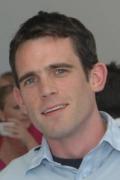AUCKLAND (Pacific Media Watch): Hillary Clinton’s key innovation adviser says there is “a whole lot more” to be made out of the internet industry and the power of new technology lies in the heads of today’s 18 to 22-year-olds.
Alec Ross, senior adviser for Innovation to the US Secretary of State, is in Auckland for the AUT University Project [R]evolution conference, and spoke to AUT students and staff today as part of a Pacific Media Centre initiative.
'Shift in power'
He said there was a "massive shift in geopolitical power… from hierarchies, including government and big media firms, to citizens and networks of citizens” and that it was all facilitated by what he called “connection technologies".
Ross said there was much more money to be made from the internet and said the Steve Jobs and the Bill Gates of the next generation “could well come from Auckland, or Mumbai, or Shanghai or Seoul”, as more and more people have access to capital and the ability to market their ideas.
He gave the New Zealand award-winning pasture meter as an example of internation innovation outside the US.
In the AUT Asia-Pacific Journalism postgraduate class - which was opened to the public - Ross went back to the beginning of human history and the very first innovators, from scavengers and gatherers, to homo erectus and the invention of the spear, through to the iron age, industrialisation and up to the internet and the world wide web in 1994.
He said social and political movements such as solidarity and the uprising against apartheid in South Africa had gained momentum over many years, but the Arab Spring events gained traction much quicker - thanks to connection technologies.
Arab Spring lessons
He gave the example of Mohamed Bouazizi, the Tunisian fruit seller, who set himself on fire and became the catalyst for the Tunisian revolution.
"People in the Tunisian diaspora then posted to social media. That content was picked up by media organisations like Al Jazeera and the Ben Ali dictatorship could no longer contain the information environment, and what started as a single spark then spread throughout Tunisia and the Arab world."
But he said these recent upheavals were "leaderless movements" and the difficulty was the power vacuum in society once a leader was toppled.
"There's no one's face you're going to put on a T-Shirt", he said of the Arab Spring movements, saying the power dynamic had changed and there was no “cult of personality” with a single leader inspiring the masses such as a Nelson Mandela or a Lech Walesa.
He said the leadership structure of these movements themselves look very much like the internet: "It's nodal, and looks like a web".
Ross said there were “control freaks” in governments and spoke about China, where billions of dollars are spent by the Chinese government, to control the "information environment".
He gave the example of the train accident in Zhejiang province last year, where the government was forced to change its approach to the accident in the face of conflicting reports of the events that immediately were posted on social networking site Sina Weibo.
"More than 6 million Chinese citizens posted more than 20 million posts in the following two weeks."
He said while in one day the Chinese government had wiped his own name off the internet for Chinese people, "even though you can take a name off the internet, you cannot contain the tweets of 6 million people".
US 'control freaks'
Turning to the United States, where Ross worked for eight years on the One Economy not-for-profit company, which bridged the technological divide to give poorer citizens access to social media, Ross responded to a question about US "control freaks" seeking to pass the SOPA (Stop Online Piracy Act) and PIPA (Protect Intellectual Property Act) legislation.
He said SOPA began as a "classical Washington piece of legislation - Northern California and the internet companies versus Southern California and the media and entertainment companies" that would have caused some regulation of the internet.
But he said the effort was derailed by a "citizen-centred, fast moving movement that was entirely networked in nature".
"In a matter of weeks, around 10 million people gave voice to this movement."
Ross said the prediction that privacy was more important than was currently thought and might have large repercussions as citizens tried to deal with personal data in the future. He said the current generation was growing up in a completely different environment as their friends were constantly "live-feeding their lives'.
He said there was more to come on privacy controls and predicted there would be new technological measures as part of a “backlash” from individuals and organisations to avoid losing control of their private data.
This work is licensed under a Creative Commons Attribution-NonCommercial 3.0 New Zealand Licence.




